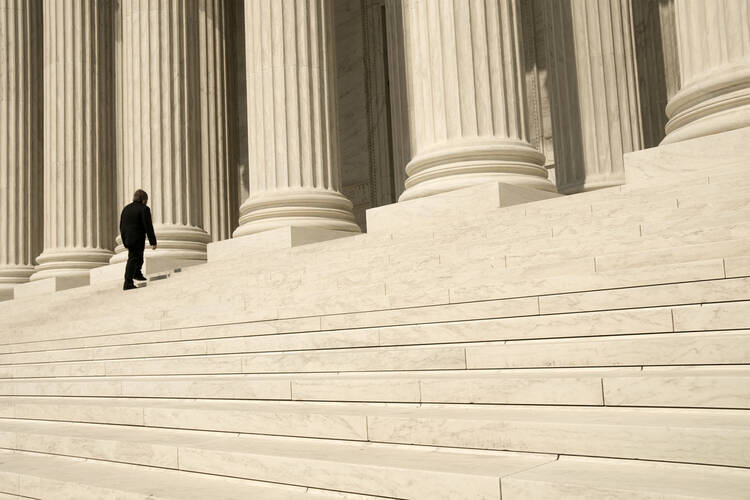In the wake of the publication of "Laudato Si’" and the U.S. Supreme Court’s decision on same-sex marriage, I’ve been ruminating not only on the substantive issues addressed in each document but also on the documents' nature and form, and how those latter qualities are received and perceived within the ad-heavy, character-restricted, emojified milieu of modern communication.
Pope Francis' encyclical spans about 38,000 words, runs near 110 pages in Microsoft Word (12-sized, double-spaced), and contains 172 footnotes. The majority opinion in Obergefell, as published on the U.S. Supreme Court website, is 28 pages single-spaced, and like many groundbreaking Supreme Court decisions, draws upon federal and state case law, statutory law, journal articles, works of history, amicus curiae briefs and more.
I wonder: How many people, regardless of their viewpoints on the contested issues, have read Pope Francis’ encyclical in its entirety? How many have read the majority opinion and the dissents in Obergefell?
How many, instead, are relying upon others' interpretations or fragments of arguments from Facebook? How does a mind formed by "scrolling," "browsing" and "surfing"—the lingua franca of online citizenship—wrestle with the nuances of constitutional law or the layeredness of the Catholic theological tradition?
I'm not suggesting that pre-Internet and pre-social media, typical Americans were digesting Supreme Court opinions and papal encyclicals, thumbing through Funk & Wagnalls to look up allusions and check footnotes. But I'm fascinated by the growing contrast between the fare we often encounter online—quick, flashy, brief, heavily framed by advertising—and the length and complexity of a Supreme Court opinion and papal encyclical. I'm also concerned that people are so quick to deliver an opinion they never encounter the document on its own terms, letting it challenge, provoke and enlighten, even in the face of disagreement.








